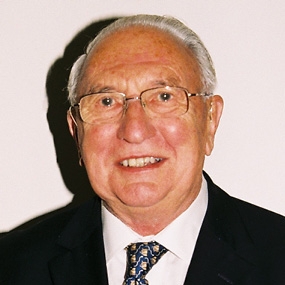Obituary - Professor Sir Malcolm Keith Sykes

13/09/1925 to 17/11/2019
Keith Sykes died after a short illness in a care home in Dorset, where he had spent his last eight months. He was mentally sharp until almost the end.
Keith read the Natural Science Tripos at Cambridge University and medicine at University College Hospital (UCH) London, qualifying in 1949. He undertook house jobs in London and Norwich, followed by national service in the RAMC in Germany which included administration of anaesthetics. He returned to UCH in 1952 for formal training in anaesthesia and attained the DA (RCP&S) in 1953. Next, he was encouraged to spend a year in the USA under a Rickman Godlee Travelling Scholarship and passed Dr Henry Beecher’s recruitment ‘trial by bourbon’ to be a Fellow in his department at the Massachusetts General Hospital (MGH) in Boston. There he challenged the Beecher and Todd Report which had concluded that the use of muscle relaxants in anaesthesia increased mortality and led to curare being virtually banned at the MGH. Sykes was allowed to conduct a prospective randomised controlled trial to compare the use of (1) ether with (2) thiopentone- nitrous oxide -suxamethonium infusion, for anaesthesia of patients undergoing major abdominal surgery. The study included some 693 patients over a period of two and a half years, and was eventually published in 1959 – it found no difference in mortality between the two groups.
In 1955 he returned to UCH to be a Senior Registrar and in March 1958 he was appointed Consultant at the Hammersmith Hospital and clinical lecturer at the Royal Postgraduate Medical School. He was granted six months paid leave from March 1959 to work on the problem of neonatal tetanus at the King Edward VIII Hospital in Durban, South Africa. There he successfully introduced mechanical ventilation (IPPV) in the treatment. This was continued after his departure with dramatic reduction in mortality.
On return to England, he became much involved with open heart surgery and the improvement of resuscitation services. He was appointed Professor at the Royal Postgraduate Medical School in 1970. That year saw the publication of his book Principles of Measurement for Anaesthetists (co-author M.D. Vickers). This provided the science supporting postoperative ventilation and concomitant clinical measurement including arterial blood gases – exactly what was needed at the time. Through the 1960s and 1970s his research interests spurred on improvements in postoperative care. A second edition of the book was published in 1981 as Principles of Clinical Measurement (Sykes, Vickers and Hull) – recommended in many if not most UK courses of training in anaesthesia. Sykes served on the Board of the Faculty of Anaesthetists 1969-85 and was FFA examiner 1968-82. The acceptance of the importance of clinical measurement in anaesthesia led to the incorporation in the FFA exams of questions on relevant aspects of physics, physiology, pharmacology and biochemistry.
In 1980 Sykes was appointed Nuffield Professor of Anaesthetics at the University of Oxford. There he modernized and expanded the Department of Anaesthetics – fostering research and further improvements in medical care. He was Consultant Adviser in Anaesthesia to the DHSS from 1986 to 1991, for which he was honoured with a knighthood in 1991, when he retired at Oxford. He was certainly kept active in his early years of retirement as he was Vice-President of the AAGBI 1990-92; in 1992 he delivered the BOC (Ohmeda) Lecture at the Diamond Jubilee celebrations of the AAGBI in London, and the Harold Griffith Memorial Lecture at the 10th World Congress of Anaesthesiologists, The Hague, Netherlands.
Keith Sykes was awarded numerous medals, prizes, honorary fellowships and memberships. In his retirement he was an active member of the History of Anaesthesia Society, serving on its Council 2003-06. In 2007 he published jointly with John Bunker a highly recommended book Anaesthesia and the Practice of Medicine: Historical Perspectives. He was one of the “greats” among British anaesthetists.
Keith Sykes married Michelle (née Ratcliffe) an art historian in 1955 and they had four children. Sadly, she and the eldest son and daughter predeceased him. He is survived by two daughters, Virginia and Susie as well as grandchildren. Unfortunately, a memorial commemoration for Keith Sykes planned to be held in Oxford in April 2020 had to be cancelled because of Covid-19.
Dr Alistair McKenzie
